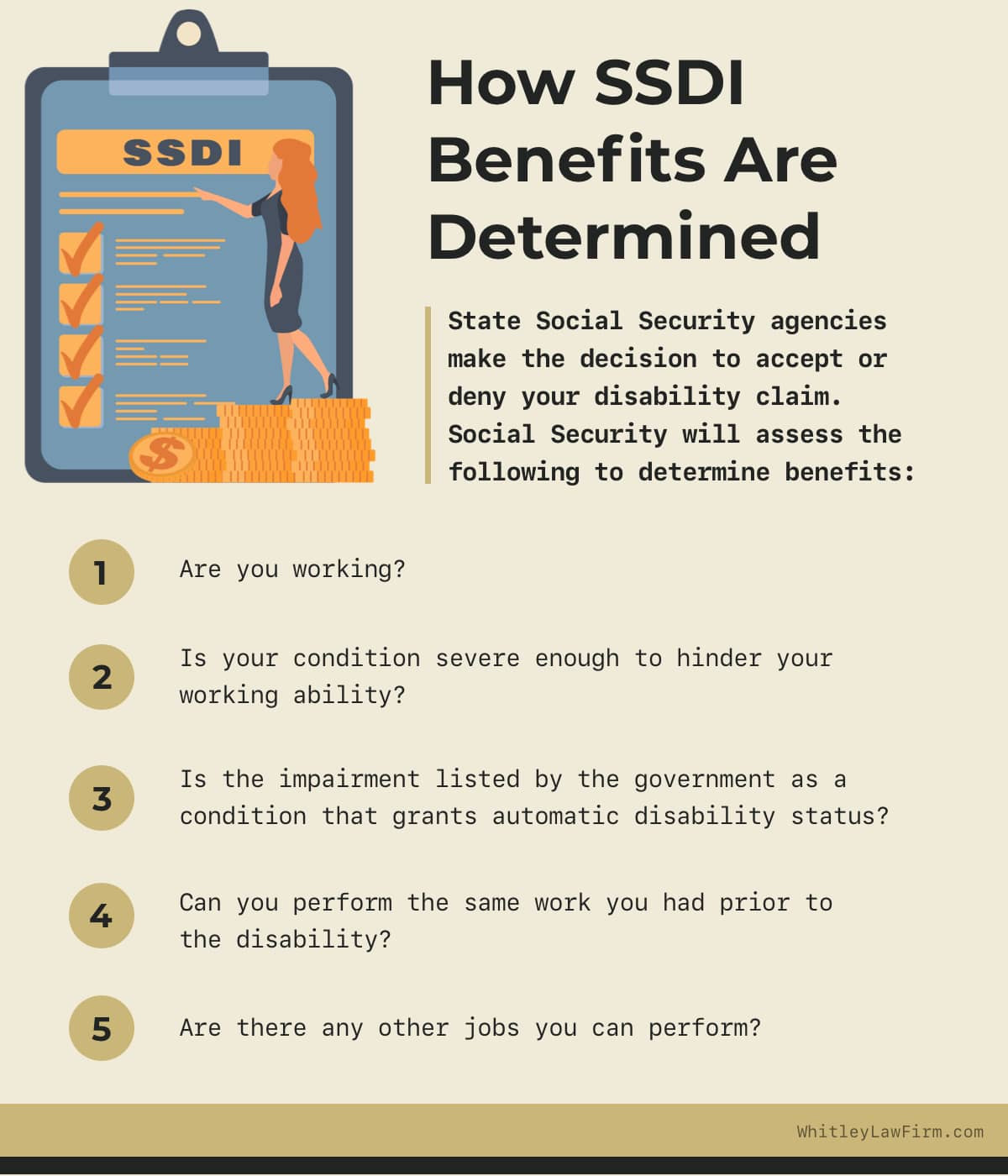Applying for Social Security Disability benefits can be a daunting process, especially when you’re already dealing with the challenges of a disability that prevents you from working. Many individuals in Raleigh, North Carolina, initially navigate this complex system without legal representation. Unfortunately, simple errors on application forms or a lack of understanding of the stringent requirements can lead to outright denial of much-needed benefits.
If you’re facing difficulties or simply have questions about securing Social Security Disability benefits, it’s wise to seek guidance. Contacting a knowledgeable disability lawyer in Raleigh can provide clarity and direction for your specific situation. Our firm is dedicated to assisting clients not only with Social Security Disability Insurance (SSDI) but also with Supplemental Security Income (SSI) applications, ensuring you understand every step of the process.
Understanding the Social Security Administration’s (SSA) evaluation process is crucial for anyone seeking disability benefits, whether you are initiating your application or navigating the appeals process. The SSA has specific definitions of “disabled” and strict earnings requirements that must be met. A well-prepared and meticulously organized claim is essential. Consulting with a Raleigh SSDI attorney who specializes in Social Security Disability cases can significantly improve your chances of success. We address many common concerns in our frequently asked questions about Social Security benefits section, but personalized advice is always recommended.
 Infographic explaining how Social Security Disability Insurance (SSDI) benefits are determined in Raleigh, North Carolina, emphasizing the importance of understanding eligibility and application processes with the help of a disability lawyer.
Infographic explaining how Social Security Disability Insurance (SSDI) benefits are determined in Raleigh, North Carolina, emphasizing the importance of understanding eligibility and application processes with the help of a disability lawyer.
How Earnings Impact Your Social Security Disability Eligibility
To be eligible for Social Security Disability benefits, your impairment must be significant enough to prevent you from engaging in substantial gainful activity. This means your condition must severely limit your ability to perform and sustain employment. The SSA sets an annual earnings limit; exceeding this limit typically disqualifies you from receiving benefits. Furthermore, your impairment must meet specific duration criteria: it must have lasted, be expected to last, or have already lasted for at least one year, or be expected to result in death.
Beyond these core criteria, the SSA employs various tests to assess disability. A crucial aspect is your work history. Applicants generally need to have accumulated sufficient work credits, earned through years of employment and Social Security tax contributions. Age also plays a role in determining these requirements, and recent work history is usually necessary.
It’s important to remember that Social Security Disability benefits are earned through your prior work and tax contributions. However, Supplemental Security Income (SSI) serves as a safety net for individuals with limited income and resources, regardless of their work history. SSI is a needs-based program designed to support those with disabilities who have minimal financial means.
The Whitley Advantage represents our comprehensive commitment to your case – we strive to provide exceptional service in every aspect.
Contact us today for a free, confidential case review at (800)785-5000.
Optimal Timing for Filing Your Disability Claim
Due to the requirement that a disability must last or be expected to last for at least 12 months, it’s generally not advisable to file for benefits immediately after becoming unable to work. Establishing the long-term nature of your disability is crucial. The initial decision process can take several months, and it’s important to be prepared for potential delays, as a significant portion of initial applications are denied. Appeals can extend the process considerably, sometimes taking a year or more depending on your location and the backlog of cases. Therefore, initiating your claim as soon as you are reasonably certain your disability will meet the duration requirement is a strategic approach.
Upon receiving your application, a representative from the Federal Social Security Administration will review it. If the initial requirements appear to be met, your case is then transferred to a state agency, often referred to as Disability Determination Services (DDS). It is at the state level where the critical decision regarding the approval or denial of your claim is made. The SSA utilizes a standardized five-step sequential evaluation process to determine disability. This process considers:
- Are you currently working?
- Is your medical condition “severe,” meaning does it significantly limit your ability to perform basic work activities?
- Does your condition meet or medically equal the criteria of a listed impairment in the SSA’s Listing of Impairments (“Blue Book”)?
- Can you perform your past relevant work?
- Can you perform any other type of work, considering your age, education, past work experience, and residual functional capacity?
Once the state agency has made its determination, the file is returned to the Social Security Administration. The SSA typically concurs with the state agency’s decision. After addressing any remaining eligibility factors, the official decision is then communicated to you via mail.
For guidance through this process, consider reaching out to a Raleigh Social Security disability lawyer near me by calling (800)785-5000.
Navigating the Social Security Claim Appeal Process
Every applicant has the right to appeal an unfavorable decision. The first stage of appeal is typically reconsideration, where a different reviewer than the original decision-maker evaluates your case. However, it’s important to note that in some states, the reconsideration step has been eliminated, allowing claimants to proceed directly to a hearing before an Administrative Law Judge.
Following a reconsideration denial (or initially, depending on your state), you have the option to request a formal hearing before an Administrative Law Judge. If the hearing decision is also unfavorable, you can further appeal to the Social Security Appeals Council. Should the Appeals Council also deny your claim, the final avenue of appeal is through the federal court system. This multi-layered appeals process underscores the significant advantage of having an experienced disability lawyer in Raleigh by your side. Contact us today to learn more about our dedicated approach to disability cases and how we can assist you.
Discover what distinguishes our firm and why we are the right choice to advocate for your disability claim.
Contact us now for a free confidential case review at (800)785-5000.

